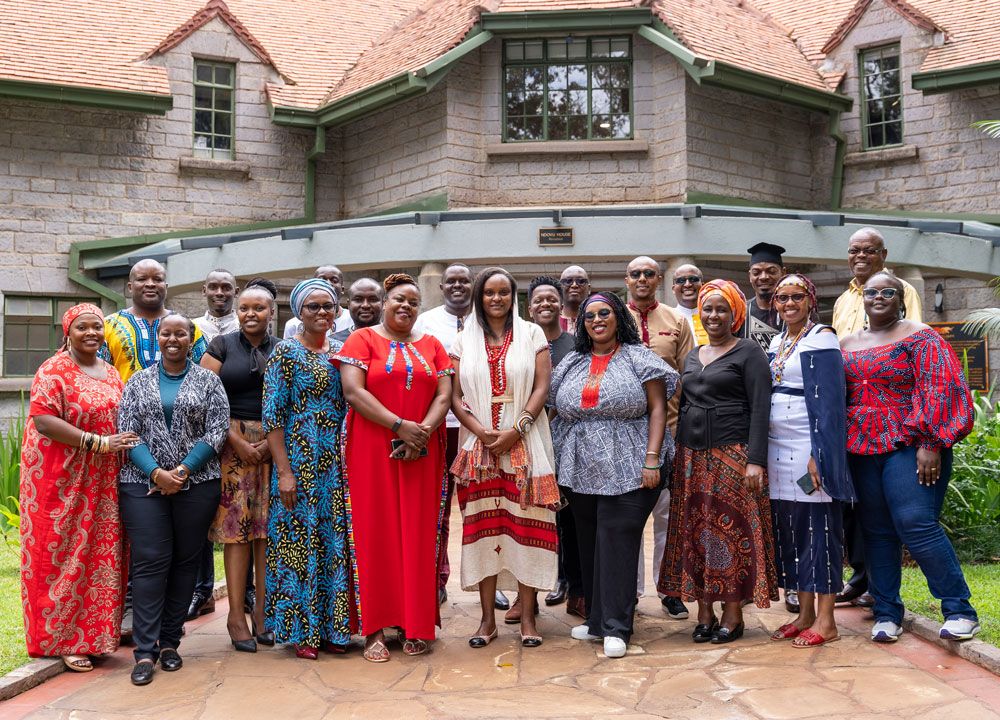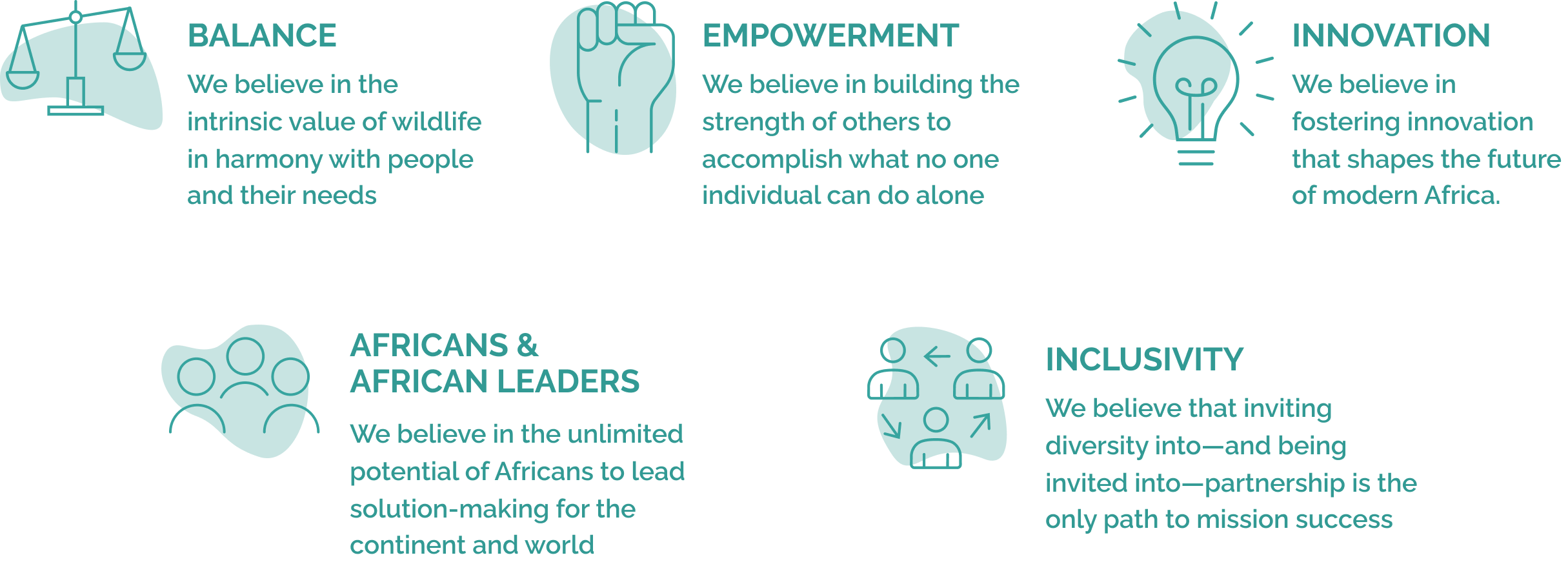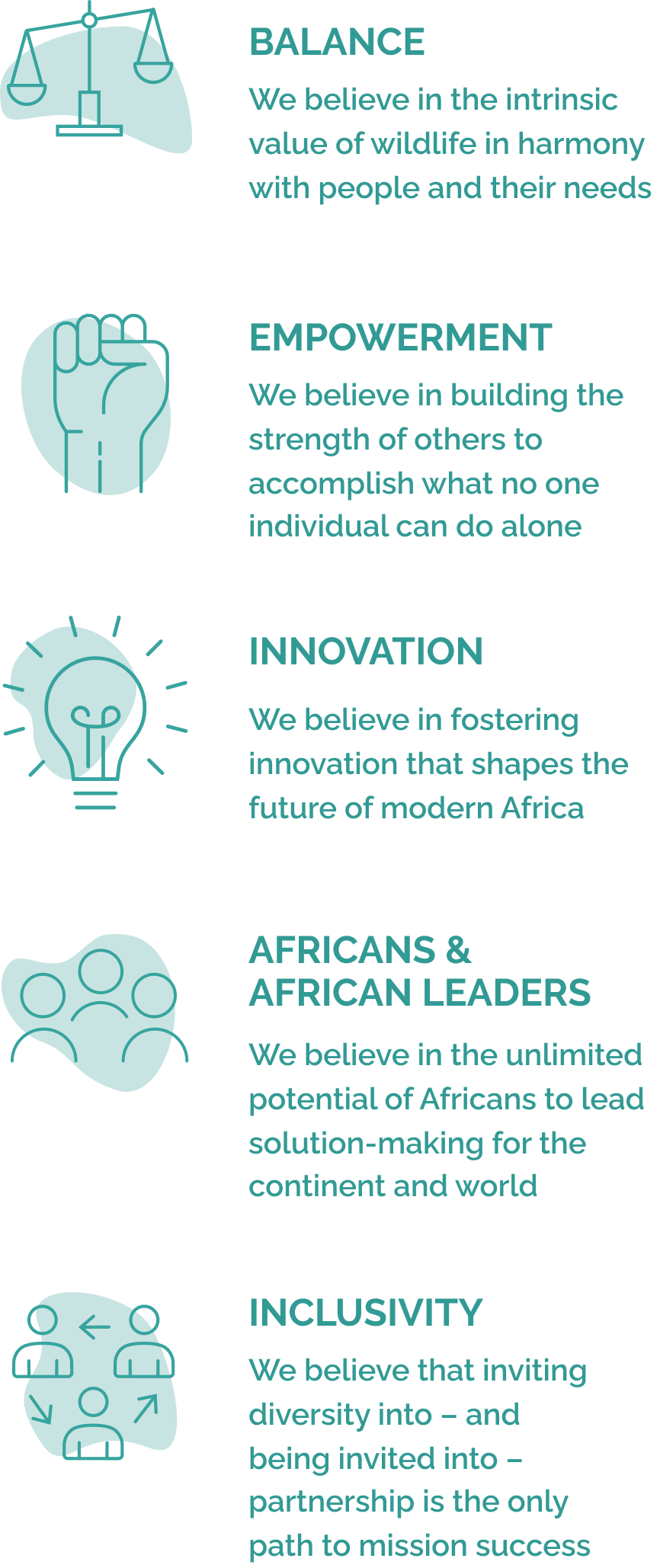Our vision is of an Africa where sustainable development includes thriving wildlife and wild lands as a cultural and economic asset for Africa’s future generations.
Africa is at a tipping point that will determine the world’s future.
By 2050, one in four young people on the planet will be African. By 2100, estimates predict that many of the world’s largest cities will be in Africa, and we will represent more than a third of the world’s population. Our continent faces rapidly escalating demands for fresh water and food production. In addition, it is home to essential natural resources the world depends upon. Pressures on our landscapes come both from within and outside Africa.
Decisions made now about where to place dams, build roads, and grow food could decimate our biodiversity and compromise global resilience to climate change. They must be guided by sound science and the recognition that we cannot survive without healthy ecosystems. We must embrace this moment and create African-led pathways where economic opportunity and conservation are complementary.
We Believe


Why AWF? We Are a Citizen of Africa
As Africa’s oldest and largest international conservation organization, the African Wildlife Foundation brings a uniquely African vision that puts people at the center of conservation and delivers sustainable solutions at the intersection of conservation and development.
We recognize that our natural heritage is a global resource. Everyone who values wildlife in Africa—and the resources our ecosystems provide the world—can play a role in supporting a vision for Africa where people and wildlife thrive.
Our strategies bridge science, on-the-ground programs, education, and public policy. Country and landscape programs focus on specific countries and transboundary areas, while our networks, business development, and policy efforts span the continent.

Staff celebrating Africa Day at AWF's Nairobi headquarters, May 22, 2024.
Our Values


We work to equip African governments, institutions, business, and communities with the tools, insights, and support they need to define, own, and realize a conservation agenda tied to progress. To get there, we connect three mutually reinforcing strategies:
Take a deeper dive into our strategy
We cannot achieve this vision without the support of global governments, partners, donors, and engaged citizens across the world.